Truth Be Told Season Two: An interview with David Lyons, Ron Cephas Jones and Mekhi Phifer
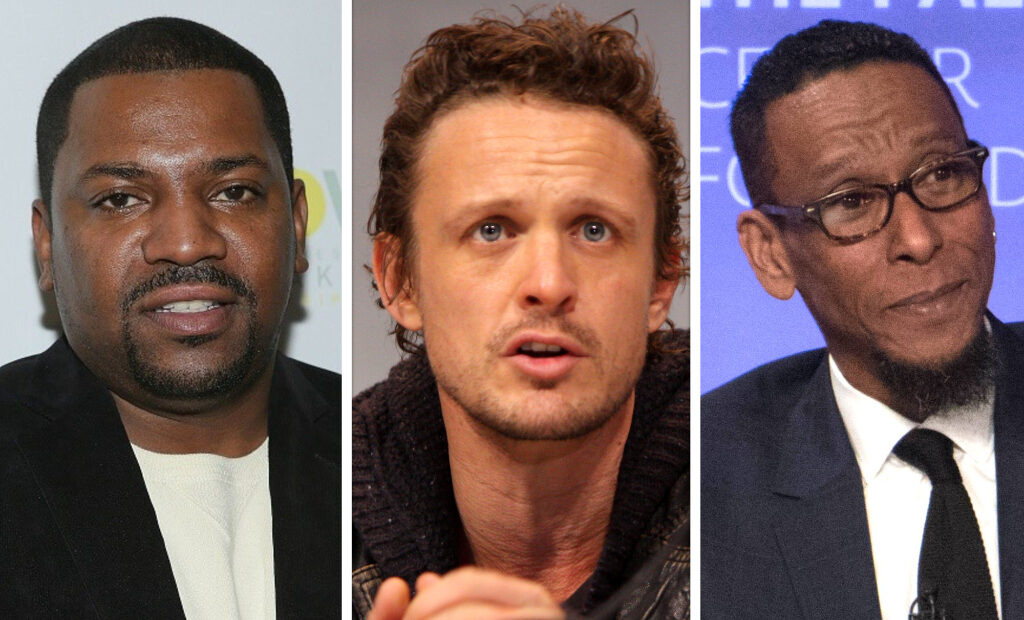
This August, creator Nichelle Tramble Spellman brings back Apple TV+ drama series Truth Be Told for a highly anticipated second season. The show continues exploring the path of crime podcast journalism and the inevitable guessing game of who committed a deadly act of murder.
A returning cast includes Academy award and Golden Globe-winner Octavia Spencer, who not only serves as executive producer alongside Spellman but takes the lead role again as the investigative journalist and crime podcaster, Poppy Parnell. A further all-star cast includes Kate Hudson in her first American series lead, starring as childhood friend of Poppy and lifestyle-guru Micah Keith. The story centres around the murder of Micah’s husband, drawing Poppy into unravelling the truth behind the brutality.
We spoke to David Lyons about his role as newcomer Detective Billy Aames, and returning cast members Ron Cephas Jones (who plays Poppy’s father, “Shreve” Scoville) and Mekhi Phifer (who plays retired detective Markus Killebrew), as they talked about working through the pandemic, preparing for their roles and what viewers can expect from the second season of Truth Be Told.
David, can you tell us a bit about the character you play in the second series of Truth Be Told?
David Lyons: My character is Inspector Aames AKA, Detective Aames, but in San Francisco they go by inspector instead. I help Poppy Parnell in her quest to find the truth behind the murder of her childhood friend, Micah’s, husband – played by Kate Hudson. It starts off with them at loggerheads, but then they start to find their feet with the two of them helping each other in exposing the truth.
How did you prepare for the role? What did you take your inspiration from?
DL: What I would do and have done in the past is some primary resource work. Looking at documentaries, to firsthand experience, speaking to friends within the police force, reading books like David Simon’s, Homicide, which allow you to get an insight into the full process behind detective work. You’re also relying on your creator for your back story. So, when I spoke to Nichelle she gave me a lot of the history, the details of the character that we don’t necessarily see or know during this season. With all of this you start to mould a person. Sometimes you hit the landing, sometimes, it’s just a mess!
You’ve appeared alongside fellow cast member Mekhi Pfier (who plays Markus) before on ER. Was it fun to be on set together again?
DL: Yes. It was really good. The first job I ever did in America was ERI; the first scene I did in that job was with Mekhi Pfier. He’s a beautiful soul and an incredible artist and actor. It was like a homecoming to me. When you jumping onto a show in it’s second season, it’s like a moving train and you’re trying desperately to maintain balance so it’s like: it’s okay, I’ve got someone.
It’s interesting to see your character start out as a kind of brash, “old school” cop, who dismisses the credentials of Poppy as a criminal podcaster and doesn’t connect with the townsfolk. But then we see you soften as the series unfolds….
DL: It was lovely to play that. It’s what the show really tries to explore. How people are not what they really seem. People’s motivations are not always what you think they are. To explore these characters, you start to see them from a different point of view you start to be more compassionate for their predicaments. It might not be that I’m playing the guy any softer in the later episodes, it’s just you start to see the circumstances he’s embroiled in that make him behave the way that he does.
How was it working so closely with the legendary Octavia Spencer and series two arrival Kate Hudson?
DL: It’s a real privilege. They say, “Don’t meet your heroes, they’ll disappoint you,” but this was the complete opposite, by a long shot. Octavia is the kind of person you want to lead the show as she gives so much. She creates a really safe and giving space. With both Octavia and Kate, they just had so much grace and compassion, they create a really lovely environment to work in. It was lovely, I really enjoyed it.
Were there any particular standout moments during filming?
DL: Well, we are still in the middle of a global pandemic, and TV and storytelling is a great escape. What’s so bizarre, though, is just before they call action, at the very last minute, everyone is in full PPE gear, masks and separated from each other under all these protocols, but then we come together to play this world and there was something really bizarre about that. Hopefully that will be a thing of the past, a distant memory. But to be working is a privilege in a pandemic with so much hardship. I’m very conscious of that. Outside of that there was a lot of fun and laughter though.
It’s a real whodunnit at the end of the day, with so many twists that keep you guessing. Do you enjoy watching crime series or listening to podcasts yourself?
DL: I do. I don’t know too many people that don’t. There is a point of fascination, which we all have. Truth is stranger than fiction, and, when it’s told well, it’s the best story on earth. I’m drawn to investigative journalism where you start to understand the motivation behind it, feeling from a distance: how the hell does someone get to that point to do those things. The real thrill of this job is you get to delve into this world.
Ron, can you tell us about your character in this season and about your developing relationship with Poppy Parnell?
Ron Cephas Jones: My [character’s] name is Shreve Scoville. My relationship to the main character Poppy Parnell, played by Octavia Spencer, is that I play her father, who was incarcerated for some time in his life. They come back together in this season to deal with the father-daughter relationship. She’s a podcaster and journalist, and there’s a murder mystery, but on the other side of it is the relationship that she has, coming back, reuniting with her father and trying to deal with resentment, anger, frustration, love and how they can start to bond again. So this season we really see the arc of a father and daughter relationship.
What was it like going from working with Pablo Lorrain on Lisey’s Story (a very devastating psychological thriller) to doing this second season of Truth Be Told?
RCJ: Pablo, he’s some sort of a genius. His work is second to none, so I felt very lucky to have the small time to work with him on Lisey’s Story, and I learned a lot. He was so open he would come up to you very closely and just talk to you very quietly and make adjustments, and I’m the type of craftsman who enjoys the idea of collaborating with the director.
I think that you can get the best performance if you have a director that has a wonderful “third eye” – things that you can’t see in the performance that the director notices, especially if there’s specificity involved – of where your hand might be, or how you look at someone. Those little things can make the story fill the story, bring light to the performance, and Pablo is a genius at that. So that’s the connection that I made with Pablo, and also with the series that I’m doing now.
How do you decide to do the projects that you do? You’ve got such a wide range of work – from things like This Is Us to Luke Cage and now Truth Be Told. What do you look for in a project before you decide that it speaks to you?
RCJ: I have a long, extensive history in the theatre, and one of the first things that you do in the theatre is script work. So, for me, it’s always about the story, and the way that I work is very script oriented. What is the story? What is it that I can do? What are the actions? With theatre, it’s really about getting inside the story and understanding what the story is, and so hopefully within television and film I can try to bring that same dynamic. I’ll open up the script and if the script has something in it, it doesn’t matter how big or small the character is, it’s about how the character fits into the story and how I can help tell that story.
We get to see so many more layers to you and your family in this second season. Do you think it’s important that the viewer is able to develop this deeper emotional connection with your character?
RCJ: Absolutely – that’s the whole main idea for me, for season two to have an arc, so you can pick up from where you left off and follow the character and see the character go through several changes. I think that’s one of the most important things. So that you can go someplace from point A, to point B, to point C, to point Q, to point J, all the way to point Z. So for me, Nichelle Tramble and the writing team gave me that particular arc in season two, so you see more layers of this character and how complicated this man is and, indeed, how complicated we all are.
It seems Shreve is the first to notice that Micah Keith, Kate Hudson’s character, is a bit of a sneaky one?
RCJ: Maybe you picked it up at the card table when they’re playing cards. The way he looks at her, he has that suspicious look on his face. Like, “Ok, you’re back,” but then he also remembers her when she was little girl and she stole money from him. That’s beautiful that you picked that up – that’s what I love. I try to find those moments where the audience could say, “Look how he’s looking at her. He doesn’t really quite trust her yet, even though he was a bit part of Micah’s life when she was growing up.” I just totally loved that because I’m able to play that different level of fatherhood or what it means to be a father anyway.
The first season of Truth Be Told received some harsh reviews. How did you strike that balance between what’s entertainment and what’s the truth?
RCJ: Man, it’s all in the writing. It’s like you can have the best actors, cinematographers etcetera, but you gotta get that story right, right? You want to get entertained. You don’t want it to be too complicated. You want to have understanding, yet you want it to be deep, so I think that’s one of the difficulties of being a writer in the writers room: finding that dynamic. It’s always going to be difficult when you’re trying to do a piece of art, right?
Some people are going to get it. A lot of people don’t, and then sometimes you find that right element. Everything just seems to come together perfectly, and so that’s what I think of season two of Truth Be Told. Thank god we got an opportunity to come back and do a season two, and I think you’ll find all those elements and those critics will be silenced in this particular season.
But then they’ll find something else. It’s always going to be something, and that’s ok – that’s just the nature of the business. I really feel strongly that because the writing is so much more superior, and they learn so much from season one, I think that those critical elements will be silenced in season two.
There’s a real insatiable love for crime series and crime podcasts. Do you enjoy watching and listening to them yourself?
RCJ: Honestly, I don’t! I mean, I’m a little old school – I just got hip to podcasts, I’m giving my age away, but I used to listen to the radio plays when I was young, so that’s the closest I’ve gotten to podcasts, but since doing this show I’ve started to explore them more and it’s just now finding the right one.
I’m a jazz aficionado and I’ve found a couple of jazz podcasts where they explore the elements of albums and who played on which album, and so I really enjoyed that. So those were the type of podcasts that I would listen to.
You explained that Octavia Spencer made it easy for you to act. Can you tell us about this aspect of your working relationship?
RCJ: I’ll give you my personal opinion. There’s two different aspects: there’s acting and then there’s craftsmanship. The whole idea is that you try not to act, if that makes any sense, and that when you connect a craftsman with another craftsman you can build an incredible house, as opposed to a hut. You have foundation, bricks and mortar, everything is put in place. There’s also technique, philosophy, intellect and physical prowess. There are a lot of elements that go into building a story.
Coming from the theatre and doing so many different wonderful plays, how you build is different because in film and television you don’t have all that table time. You don’t have that extensive three-week rehearsal time. But you know when that person across from you has done their homework, and that’s what it’s like to work with Octavia. Everybody on this project has the craftsmanship that I really appreciate and respect.
In terms of the longevity, what is it like for you to act in a new series when there are no longer shows with five or six seasons like This Is Us? How different is that for you?
RCJ: It’s like you don’t have any control over that, and it can be frustrating at times – waiting for season two and you don’t know if it’s going to happen – but thank god for the audience. Maybe if it was left up to the critics we may not have a season two, and then it’s just Apple TV taking a huge risk.
I just know that anytime I get a season I feel blessed; it’s far and few between. You know that the field is so saturated right now with different series. There’s a lot of mediocrity and there’s a lot of brilliance, so, cyphering it out and sifting through it, you just hope that you fall into a place again.
Mekhi, as a black man, taking on the role of a cop or an ex-cop, with everything else that’s going on in America, comes with a lot more baggage. Could you talk about those considerations? If you had taken this role five years ago would it have been different?
Mekhi Phifer: Well, it wouldn’t have been that much different. You’ve got to understand being African American and growing up in America you get accustomed to the relationship between people in the community, the police and law enforcement. You kind of grow up with it, especially if you’re from the inner city or any kind of situation – you’re of the hip hop culture or whatever you want to call it – and you’re going to get profiled. It’s just what it is. There’s nothing new, so it wouldn’t have been much different five years ago.
Markus, my character on Truth Be Told, it’s a dichotomy because he is of that community but then he is also a police officer, sort of straddling the fence. It’s a dynamic that I’m having a really great time playing because it adds complexities to the the character and the character’s motivation.
How would you describe the way your character develops in the second season? How does your relationship evolve with Poppy?
MP: in the first season I make a reference to my ex-wife and how we were very much strained, and that I have a young daughter too. Well, she’s a teenager now and in season two it opens up with that: we all live together. My ex-wife and I have reconciled, and my daughter, so now we’re in the same household. And so in season two you really get to delve into what that life is like, which you don’t really get to see in season one at all. In season two you really get to get more personal – not just with myself, but with the other characters as well.
What attracted you to this this role?
MP: Well, what attracted me to it is that the there were endless possibilities: the character could be funny, he could be intimidating, he could be sad, he could be angry, and, you know, it was just like the the full gamut of emotions that I was able to explore.
The writing is great. I think Michelle did a great job with spearheading the writing. He wasn’t just pigeonholed into one way of being – he could pivot and work in the underworld, the street aspect, like the motorcycle club, and then also the law enforcement world as well as the corporate side too. A well-rounded individual. So that, to me, was one of the most intriguing things about playing Markus.
What do you think is the special thing that sets this show apart from other series inspired by podcasts and gives it its mystique?
MP: I think one of the mystiques of the show is that you know it’s a true crime drama – it’s something that we could all relate to. It’s something that I think is a big thing these days, because you can really see yourself in this situation, like, what if this situation came around to you? How would you deal with it?
These characters are developed so well that you can really follow their storylines and follow what their motivations are. When you’re dealing with the true crime situation, there’s always going to be a new crime, so each season is always a new scenario or new situation with great guest stars like Kate Hudson, and in the first season we had Aaron Paul and Lizzy Caplan, alongside other great top tier actors.
A-list actors are intrigued by this as well, and I think that that’s what sets us apart from just any old regular show – you don’t know what you’re gonna get, but you know when you get it you can’t stop watching it.
The show reflects on journalism and podcasts, the user and where their boundaries should be. Lately we’ve seen both information and misinformation run wild on the Internet and in the media. In light of the show, where do you think these boundaries should be placed?
MP: It’s hard to say because you need to have responsible journalism in any scenario. You should be able to pull up the facts, assess the facts so that you’re not just giving this information and people aren’t misled, and so that you’re not having to retract what you put out a day before, and I think that this show touches on that.
In the first season and even in the second season, Poppy, because of her emotions and her podcast, sometimes puts out information that she doesn’t have all the facts about because she’s so impassioned by trying to get the word out there. You wind up misleading your listeners and your viewers. Everybody wants to be first to get the news out there because hopefully it gets you that Pulitzer, that accolade.
You really need to do true investigating so that people don’t get hurt, because when you give out that misinformation, you affect a number of people so it’s very important to have responsible journalism.
Who are some of your favourite true crime heroes – any you look up to to help get into character?
MP: There’s not one particular true crime hero that I latch onto when it comes to character development – that’s not my process. My process is a little bit different.
I like to read the text, I like to talk to the writers, the directors. I like to get into the mindset of the character I’m going to play so I don’t try to hold on to the characteristics of anybody else. I’m just trying to play the character as true as possible.I don’t play good guys or bad guys, I play people.
That person – a serial killer, for instance – we may see it as morally wrong, and it most likely is, but the serial killer doesn’t see it that way. The serial killer doesn’t see himself as a bad guy. The serial killer has a motivation. What’s his motivation? What drives him to wanna hunt somebody down and and kill him? And just, you know, it’s really about what makes this person human. I try to humanise. rather than scrutinise a person when I’m playing a character.
So you’ve been doing this for two seasons now and you’ve been deeply embedded in this world. Can you explain our arguably sordid obsession with true crime? What do you think that stems from?
MP: Like I said before, I think people are intrigued when it comes to true crime because the person that committed that crime was somebody’s neighbour, uncle and father, mother, daughter, son, whatever. It’s always, “He’s such a nice person. He was quiet, he said ‘Hello’ every morning. I saw him out there mowing his lawn yesterday.” Then he kills everybody and has ten bodies in the basement.
It’s almost like watching a car wreck or train: you’re seeing this this twisted metal and fire but you have to slow down and watch it because you can’t believe that this is happening in front of you, and I think that’s what the true crime aspect is. You really wind up looking at people in in a different light. We can’t prejudge whether it’s in a positive way or a negative way, It allows you to look into something a little bit deeper and not rest on your laurels but be a little cautious.
Look, I told my sons – I have two sons – they’re millennials, so they’re on their phone all the time and they walk into restaurants, and they have their heads down and they don’t look at the exits and I say: “Look man, you can’t just be on your phone, you have to look around. Somebody comes in here, it’s July and it’s 99 degrees outside and there’s a trench coat, you have to look at that guy. There’s something wrong here.”
It must have been really tricky co-ordinating all the filming for the second season during the Covid-19 pandemic. How did that work for you guys?
MP: Oh man, it was, it was. It was interesting because even though I’m fully vaccinated it didn’t matter. I was shooting two shows at the same time, one mainly on the Paramount lot and one on the Fox lot, and sometimes I would have to get tested twice in one day because I was shooting two shows in one day sometimes, and it was a test every day.
Basically, even if you weren’t shooting, you still had to drive up to the lot, get the swab, make sure that you were cleared. When they yell cut, you have to clear the set when the other people come in, adjust the lighting, adjust the camera. it was definitely an arduous situation, an adjustment, but we got through it and it’s just what it is. I mean, better safe than sorry.
After a couple of weeks you get used to it and and you’re happy to be back at what you do and be around people, to be creative and put some great product out there for the public.
Ezelle Alblas
Truth Be Told: Season Two is released on Apple TV+ 20th August 2021.
Watch the trailer for Truth Be Told here:

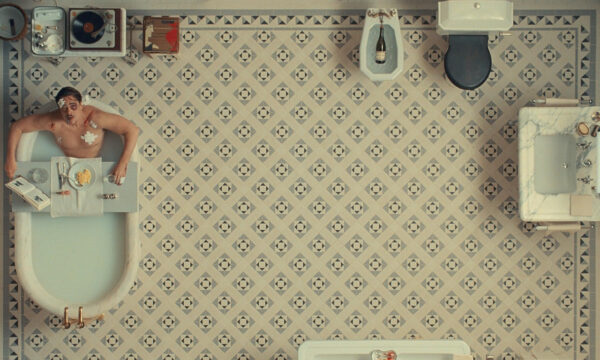
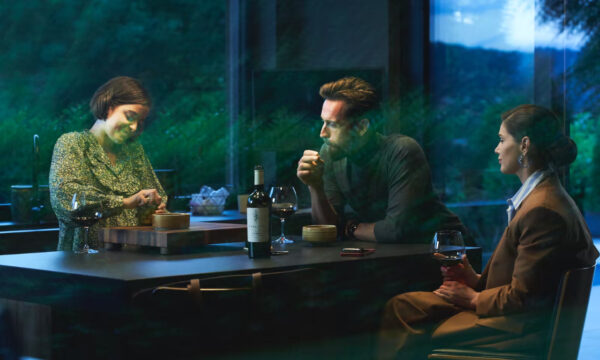
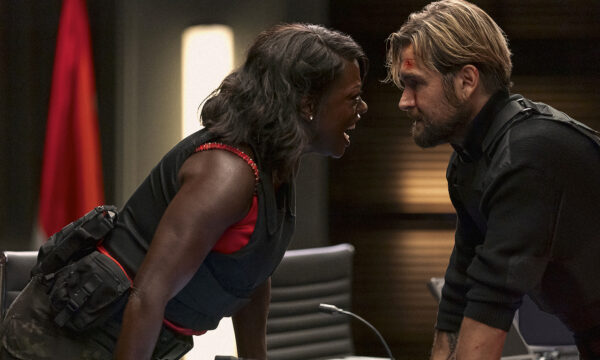
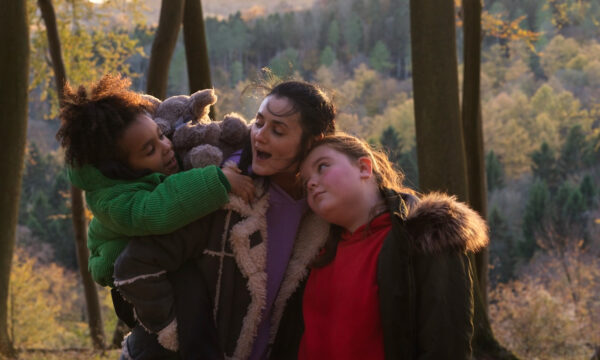
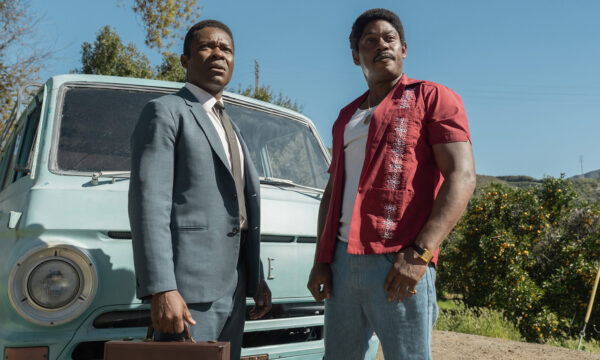
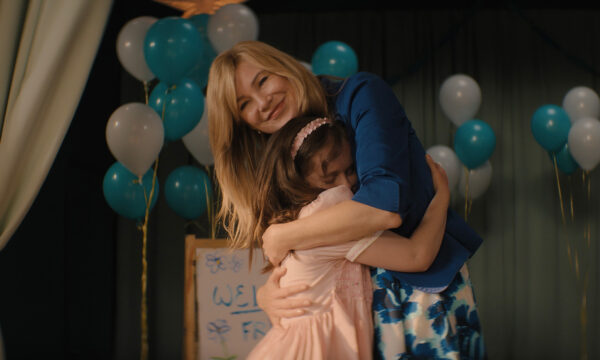
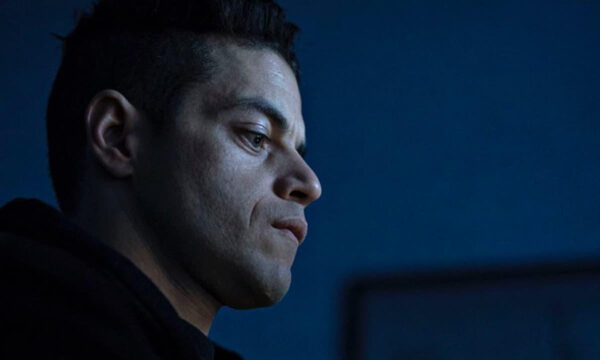
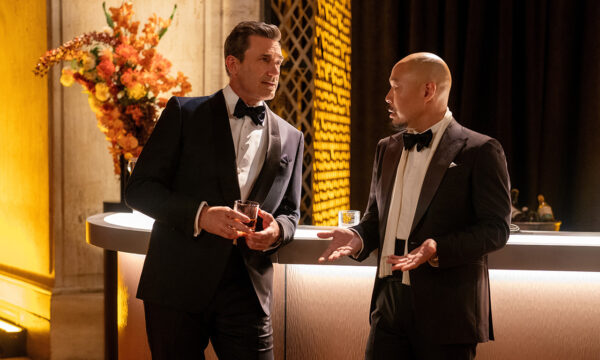
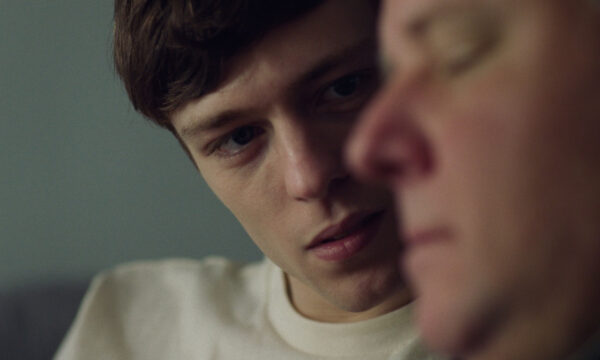














Facebook
Twitter
Instagram
YouTube
RSS